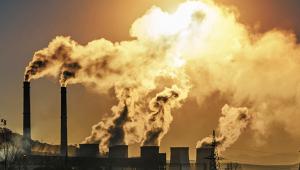The Canadian House of Commons has passed a motion declaring the emergency and supporting the country’s commitment to meeting the Paris targets on curbing pollution.
But the move comes as prime minister Justin Trudeau has given the go ahead to a C$7.4bn oil pipeline extension fiercely opposed by environmentalists that will test his green credentials.
The parliamentary vote to declare that Canada is facing a “national climate emergency” was passed on Monday and describes climate change as a “real and urgent crisis, driven by human activity”.
Put forward by environment and climate change minister Catherine McKenna, it was backed by Liberals, New Democrats, Bloc Quebecois and Green MPs – but rejected by Conservatives.
The resolution noted how climate change is now affecting Canadians and called on the country’s states to pursue clean growth in order to reduce greenhouse gas emissions.
The House voted to ensure Canada commits to meeting its emissions targets under the Paris Agreement and to making deeper reductions in line with the objective of keeping global warming below 2C.
Conservative leader Andrew Scheer was due to unveil a long-awaited environmental policy this week after promising last year that he would be developing a climate plan to meet the Paris targets without carbon taxes.
While mainly symbolic, the parliamentary vote appears to be at odds with a decision by Trudeau to approve the Trans Mountain oil pipeline expansion project between Alberta and British Columbia after it was returned by a federal court last summer.
The 1,150 km project will triple the capacity of the existing Trans Mountain pipeline and increase oil tanker traffic on the Pacific Coast from five to up to 34 tankers per month.
The decision is likely to pose a challenge for Trudeau – who has insisted Canadians do not have to choose between the environment and the economy – as campaigning gets underway for federal elections in October in which climate change is set to be a key theme.
His Liberal party has made it clear that it aims to fight the election on environmental issues – with opponents pressing it to explain how this can be reconciled with the pipeline project.
Announcing the approval, Trudeau pledged that any revenue that the federal government receives from the project will finance a “transition to a green economy”.














